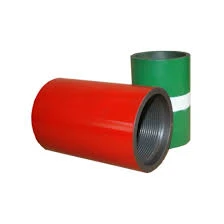- Afrikaans
- Albanian
- Amharic
- Arabic
- Armenian
- Azerbaijani
- Basque
- Belarusian
- Bengali
- Bosnian
- Bulgarian
- Catalan
- Cebuano
- Corsican
- Croatian
- Czech
- Danish
- Dutch
- English
- Esperanto
- Estonian
- Finnish
- French
- Frisian
- Galician
- Georgian
- German
- Greek
- Gujarati
- Haitian Creole
- hausa
- hawaiian
- Hebrew
- Hindi
- Miao
- Hungarian
- Icelandic
- igbo
- Indonesian
- irish
- Italian
- Japanese
- Javanese
- Kannada
- kazakh
- Khmer
- Rwandese
- Korean
- Kurdish
- Kyrgyz
- Lao
- Latin
- Latvian
- Lithuanian
- Luxembourgish
- Macedonian
- Malgashi
- Malay
- Malayalam
- Maltese
- Maori
- Marathi
- Mongolian
- Myanmar
- Nepali
- Norwegian
- Norwegian
- Occitan
- Pashto
- Persian
- Polish
- Portuguese
- Punjabi
- Romanian
- Russian
- Samoan
- Scottish Gaelic
- Serbian
- Sesotho
- Shona
- Sindhi
- Sinhala
- Slovak
- Slovenian
- Somali
- Spanish
- Sundanese
- Swahili
- Swedish
- Tagalog
- Tajik
- Tamil
- Tatar
- Telugu
- Thai
- Turkish
- Turkmen
- Ukrainian
- Urdu
- Uighur
- Uzbek
- Vietnamese
- Welsh
- Bantu
- Yiddish
- Yoruba
- Zulu
compression tubing coupler
Understanding Compression Tubing Couplers A Complete Guide
In the world of piping and tubing systems, ensuring a secure and leak-free connection is paramount. One essential component that plays a vital role in achieving this goal is the compression tubing coupler. This article will delve into what compression tubing couplers are, how they function, their applications, and the reasons why they are favored in various industries.
What is a Compression Tubing Coupler?
A compression tubing coupler is a mechanical device used to connect two lengths of tubing or piping in a secure manner. It operates by applying pressure to the tubing or pipe, thereby compressing a seal or ferrule around the tubing. This compression creates a tight, leak-proof connection that can withstand fluctuations in temperature and pressure.
Typically constructed from durable materials such as brass, stainless steel, or plastic, compression couplers are designed to handle various media, from air and water to more complex chemical substances. The design of a compression coupler usually includes a body, a nut, and a ferrule, which together facilitate a strong and reliable connection.
How Does a Compression Tubing Coupler Work?
The functionality of a compression tubing coupler is quite straightforward. When two tubes are inserted into the coupler, the nut is tightened onto the body of the coupler. This action compresses the ferrule against the surface of the tubes, creating a snug fit that prevents any leakage.
The effectiveness of the compression connection lies in a few key features
1. Tight Seal The ferrule's design allows it to conform to the shape of the tube, ensuring that even minor imperfections in the tubing's surface do not lead to leaks.
2. Ease of Use Compression couplers can be assembled and disassembled without special tools, making maintenance and repair tasks straightforward.
3. Versatility They can accommodate a variety of tubing materials and sizes, providing flexibility for different applications.
Applications of Compression Tubing Couplers
Compression tubing couplers are utilized in a broad range of applications across various industries
compression tubing coupler

1. Plumbing In residential and commercial plumbing systems, these couplers are used to connect different tubing sections for water supply lines or drainage systems.
2. Automotive The automotive industry employs compression couplers in fuel lines and coolant systems due to their ability to withstand high pressures and temperatures.
3. Refrigeration and HVAC Compression couplers are commonly found in air conditioning and refrigeration systems to connect refrigerant lines.
4. Industrial Manufacturing Many manufacturing processes require fluid transfer, and compression couplers serve as reliable connectors for hydraulic and pneumatic systems.
5. Medical Applications In medical devices and laboratory equipment, these couplers are invaluable for connecting various fluid pathways, ensuring efficient and sanitary operations.
Advantages of Using Compression Tubing Couplers
The popularity of compression tubing couplers can be attributed to several inherent advantages
- Reliability The tight seal they provide significantly reduces the risk of leaks, which is crucial in applications where even minor leaks can lead to severe consequences.
- Cost-Effectiveness While not always the cheapest option upfront, their long-lasting reliability and low maintenance requirements make them a cost-effective solution over time.
- Reusability Unlike some other connection methods, compression couplers can be reused multiple times, contributing to waste reduction and sustainability.
- Easy Installation Their intuitive design allows for quick installation and disassembly, making them ideal for situations where maintenance is frequently required.
Conclusion
In summary, compression tubing couplers are essential components in a multitude of applications that require secure and reliable connections. Their ability to create tight seals, ease of use, and versatility make them a preferred choice in various industries, from plumbing and automotive to medical and manufacturing. As technology continues to advance, the importance of effective connection technologies will only grow, making understanding components like compression tubing couplers ever more critical. For anyone involved in industries reliant on piping and tubing systems, mastering the use of compression couplers is a valuable skill that can lead to improved efficiency and safety.
-
Well Casing Extension Couplings – Applications and InstallationNewsJun.06,2025
-
Types of Crossover Subs in Drilling & CompletionNewsJun.06,2025
-
Key Features of High-Quality Tubing Pup JointsNewsJun.06,2025
-
Installation and Maintenance Tips for Steel Couplings for PipeNewsJun.06,2025
-
How to Select the Right Pup Joint for Oil & Gas OperationsNewsJun.06,2025
-
Applications of Stainless Steel Pipe CouplingsNewsJun.06,2025







